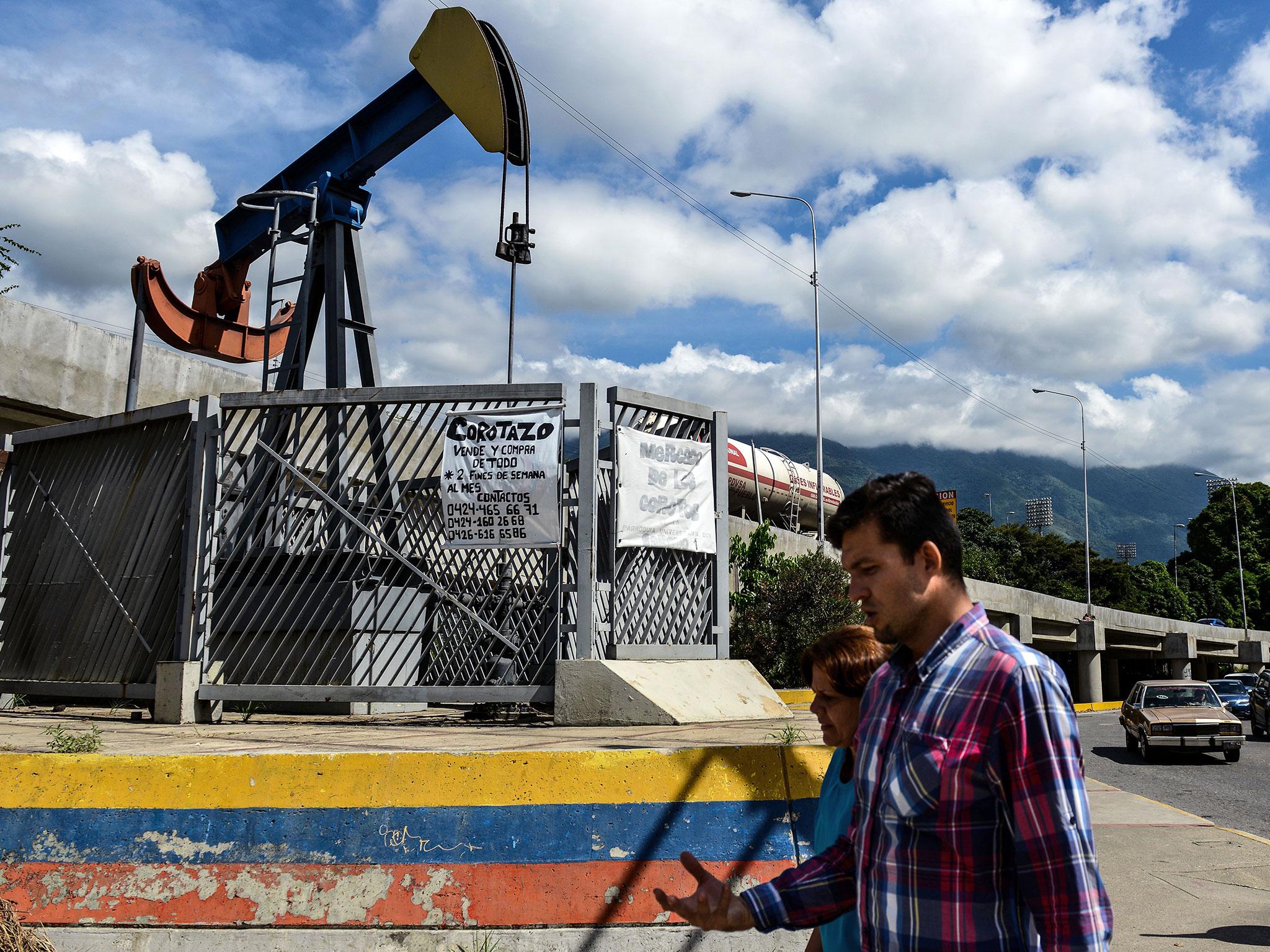How Venezuela has resorted to importing oil as its core industry faces collapse
‘They are importing barrels that cost $80 to $90 and selling them at $0’

Your support helps us to tell the story
From reproductive rights to climate change to Big Tech, The Independent is on the ground when the story is developing. Whether it's investigating the financials of Elon Musk's pro-Trump PAC or producing our latest documentary, 'The A Word', which shines a light on the American women fighting for reproductive rights, we know how important it is to parse out the facts from the messaging.
At such a critical moment in US history, we need reporters on the ground. Your donation allows us to keep sending journalists to speak to both sides of the story.
The Independent is trusted by Americans across the entire political spectrum. And unlike many other quality news outlets, we choose not to lock Americans out of our reporting and analysis with paywalls. We believe quality journalism should be available to everyone, paid for by those who can afford it.
Your support makes all the difference.Despite having the greatest oil reserves in the world, Venezuela’s government is being forced to spend millions of dollars a day importing crude to prop up its ailing industry.
Petrol remains the only cheap commodity left in Venezuela amid the collapse of most of its economy, but the oil industry is now also struggling to meet basic domestic demands.
Experts say the industry is operating below 40 per cent of its potential output. Last month, the International Energy Agency reported that Venezuela is and will probably remain “the biggest risk factor” in a global supply crisis that may soon tip the market into deficit.
The speed of decline in production has been vertiginous, with output falling by 100,000 barrels a day in February, according to Bloomberg. The Central University of Venezuela says production is reaching its lowest point in 70 years.
Most of the enormous oil reserves Venezuela has access to – almost 25 per cent of all the oil controlled by the world’s biggest producers – is heavy crude, and needs to be diluted with lighter oil to become a commercially viable product.
In 2016, with its own industry failing to deliver, Venezuela imported diluents for the first time in its history. In the two years since, those imports have grown to as many as 200,000 barrels a day, mostly from the US, according to Francisco Monaldi, fellow in Latin American energy policy at Rice University in Texas.
The long queues for food and medicine in Venezuela are now well documented, but lines of cars waiting outside petrol stations – something that would have been unthinkable a few years ago, when petrol cost $0.01 (0.7p) per litre – are becoming more common.
Filling your tank is still cheaper than drinking water in Venezuela, but the industry can no longer meet domestic demands – and is having to put exports first. Monaldi says that if production continues to fall to below a million barrels, the consequences could be catastrophic.
“The domestic consumption of oil is around 450,000 barrels and Venezuela needs the exports to repay its debt with Russia and China,” he says.
“They have to import for two reasons. One is the collapse of the refining infrastructure and the other is that its oil is naturally heavy so they need to import diluents to blend with their oil to re-export it.
“One of the craziest things is that a part of Venezuela’s imports is for the domestic market, but given its price, they practically give gasoline away for free. They are importing barrels that cost $80 to $90 and selling them at $0.”
Monaldi says the only hope is for a major change in politics. He estimates it would take a decade for Venezuela to go back to what it was, and maybe much longer than that.
Venezuelan polling group IVAD suggests that elections next month are not looking good for President Nicolas Maduro. Of those polled, 77 per cent believe that the country needs a change of government, the main reasons stated being lack of food and medicine, insecurity and the high cost of living.
The IMF expects the Venezuelan economy to shrink by 15 per cent in 2018, and the country is facing the worst decline of GDP in recorded history in Latin America. It estimates that by the end of 2018, the accumulated decline will be almost 50 per cent from its peak in 2013.
Oil makes up more than 90 per cent of the nation’s exports, but a combination of government corruption, lack of investment and the migration of qualified staff have left the industry in ruins. It’s a crisis that has directly hit the country’s ability to import resources like food or medicine for the Venezuelan population.
It is a vicious spiral. It is estimated that 10 per cent of the population has emigrated. Almost two thirds of all households have at least one family member living abroad. And among those 3 million migrants are young and competent workers who have escaped from a country that sinks deeper into crisis.
Join our commenting forum
Join thought-provoking conversations, follow other Independent readers and see their replies
Comments